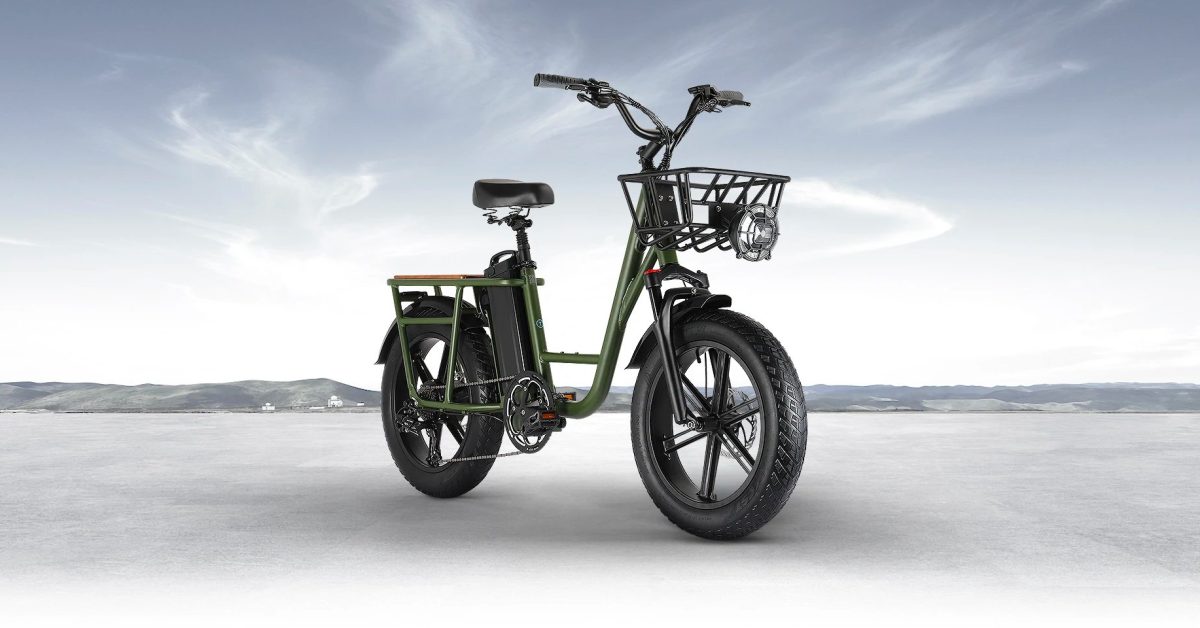[ad_1]
Fiido has just quietly launched the brand’s latest electric bicycle, known as the Fiido T1 electric cargo bike. And for anyone paying attention to the electric bike industry, you’ll likely know exactly which e-bike it is based on.
There’s a fairly obvious visual connection between the Fiido T1 and the RadRunner from Rad Power Bikes. It’s not so similar to be a blatant ripoff, but there’s some serious homage being paid here (unlike any royalties that are surely not being paid).
The step-through utility bike wasn’t invented by Rad Power Bikes, but the Seattle-based company propelled it to fame when it launched the low-cost RadRunner e-bike in 2019.
The Fiido T1 takes a very similar design (and color), yet seems to include a number of interesting features and add-ons not found on the original RadRunner.
For starters, the T1 uses a similar setup with 20″ wheels sporting fat tires, a non-suspension step-through frame, rear rack integrated into the frame, tall handlebars, and accessory mounts on the headtube.
Fiido’s T1 uses a similar 750W motor in the rear and also sports mechanical disc brakes.
The layout creates a short, nimble, and easy-to-mount electric bike with plenty of power for cargo or utility jobs, and so far all of these features are common across both models.
But that’s where the similarities end, because Fiido differentiated the T1 in a number of ways.
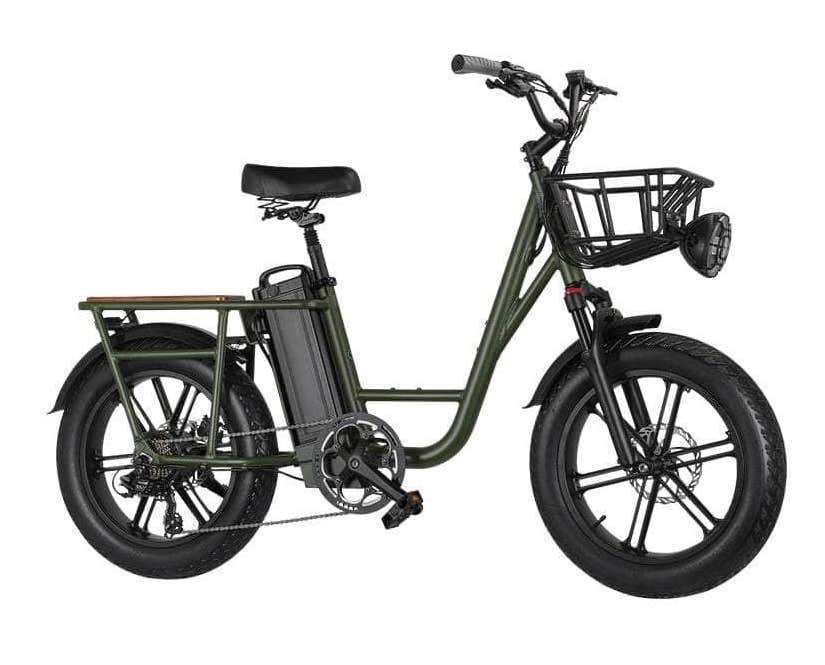
First of all, the T1 hits a higher claimed top speed of 50 km/h (31 mph), though that would put it just higher than the legal limit of 45 km/h (28 mph) in the US.
To help keep up with pedaling at higher speeds, the T1 includes a 7-speed drivetrain instead of a single-speed setup like the one found on the RadRunner.
The 7-speed should offer improved higher and lower range pedaling, though the bike’s three levels of pedal assist don’t match the five levels afforded by the RadRunner.
The inclusion of a front suspension fork should improve the off-road comfort as well as smooth out some of the more imperfect roads that riders regularly face. There’s no rear suspension, but Fiido does include a suspension seat post and a suspended saddle.
The rear rack is lower on the T1, which might help reduce the center of gravity when hauling heavy items on the rear.
The Fiido T1 also comes with a large 48V and 20Ah battery with 960 Wh of capacity. The company claims a maximum range of 150 km (93 miles) on pedal assist, though real-world range is likely to be significantly less under average conditions.
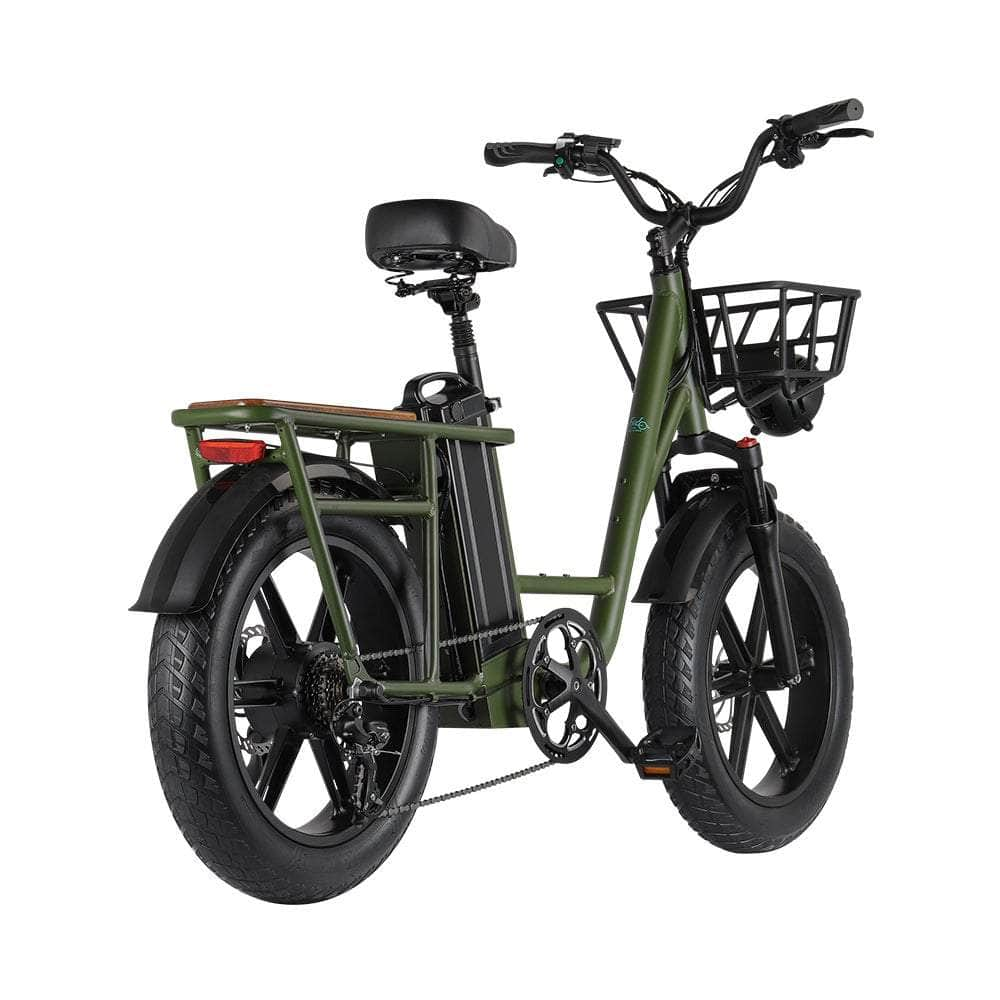
Fiido also uses cast wheels, meaning the traditional 36 adjustable bicycle spokes in each wheel are replaced by six cast spokes. That removes the need to perform spoke maintenance and prevents the wheel from becoming out of true over time (wobbling like a pizza dough thrown in the air).
Included accessories such as a front basket and fenders that come standard as well as a wooden deck on the rear rack help add a bit more value to the bike and prevent the rider from having to pay extra for accessories.
Speaking of paying extra, the Fiido T1 is currently on sale for $1,599, which puts it just $100 higher than the RadRunner’s $1,499 price.
Want to make your own call on how similar the two e-bikes are built? Use the comparison slider to take a look at the two models side by side.
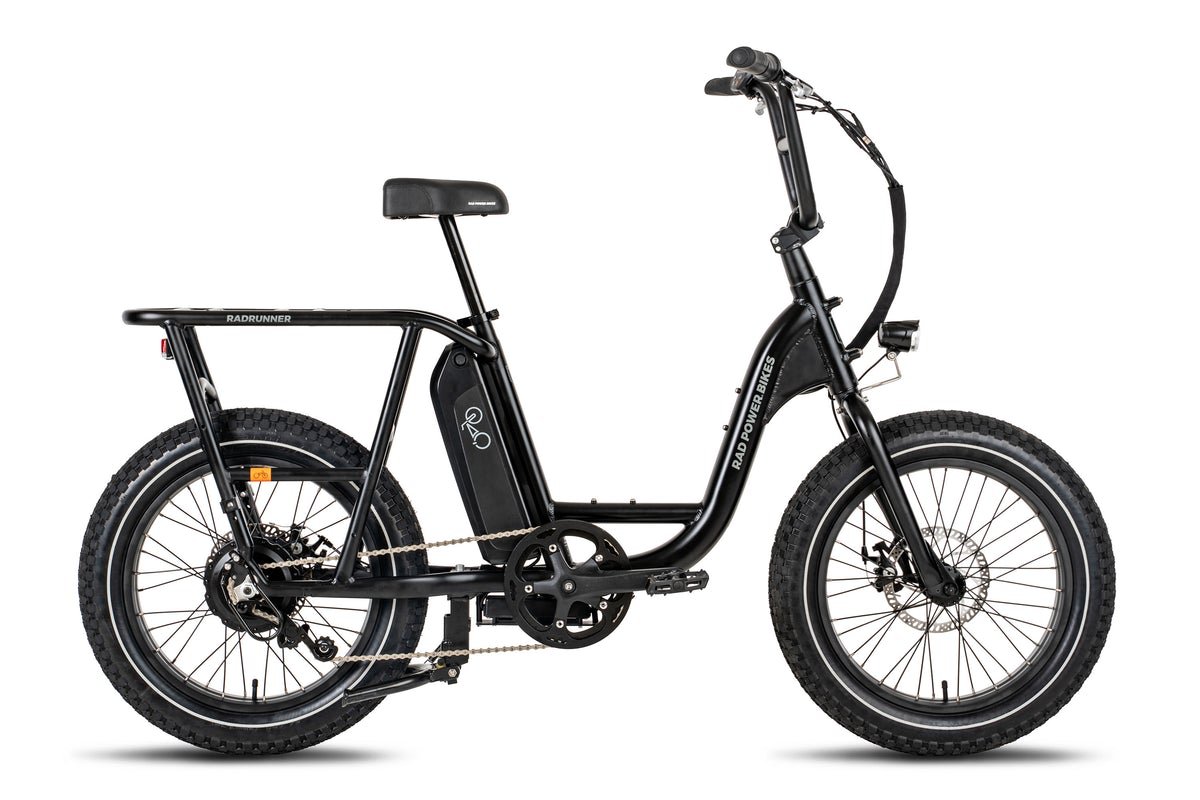
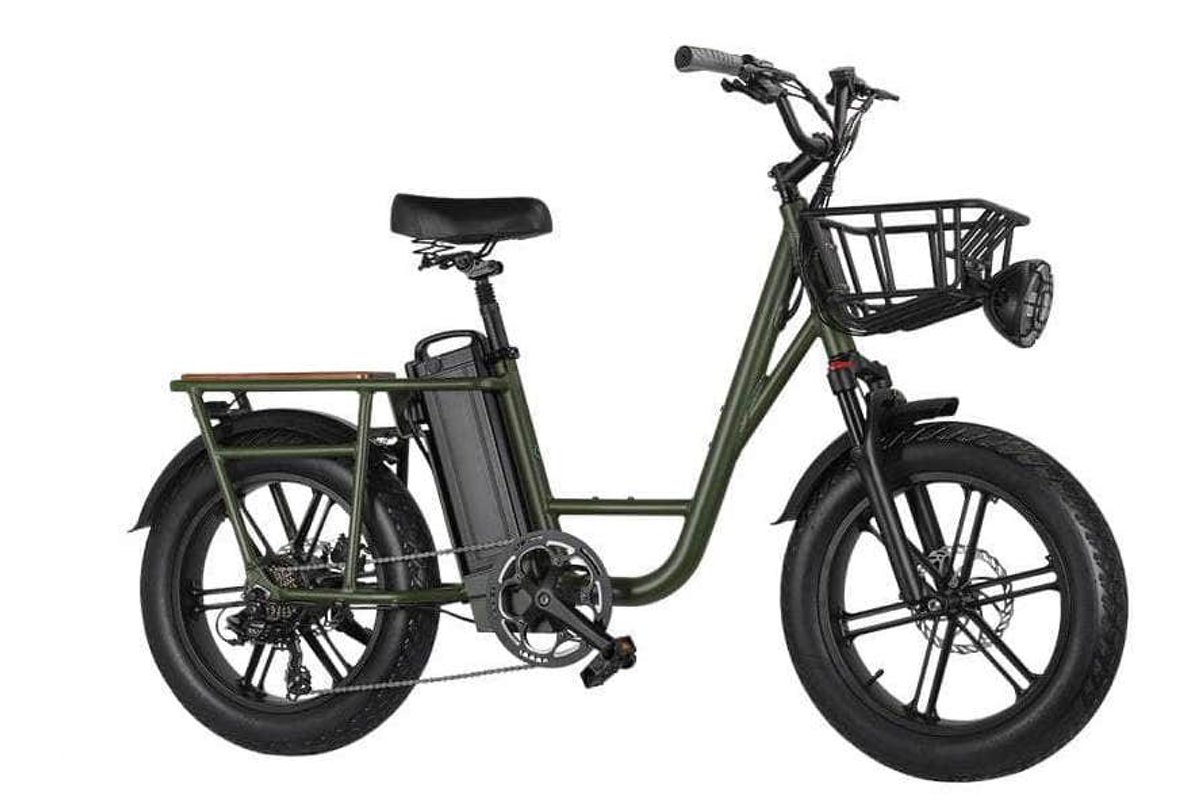
Electrek’s Take
That extra hundred bucks sound like a good deal for significantly more battery, higher speed, and more included accessories. But at the same time, the Fiido T1 doesn’t come with the same level of support and peace of mind that a giant company like Rad provides, and it’s hard to say if they’ll match Rad’s build quality.
I actually have a RadRunner 2 I’m testing for a review right now, and it was dropped off fully assembled in front of my house thanks to the Rad Mobile bike-shop-in-a-van service they offer. Those kinds of features get factored into the price, which consumers often forget about.
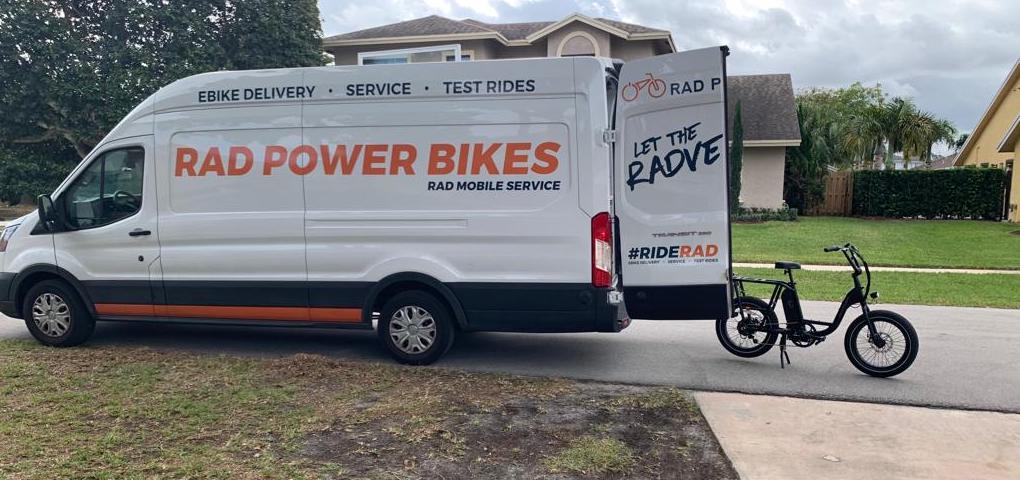
Even so, Fiido definitely nailed some key feature upgrades here. And I appreciate that if they’re going to copy a well-known e-bike design, they at least added to it instead of making a 1:1 ripoff like we’ve seen other companies do in the past.
They say imitation is the sincerest form of flattery, but that’s hardly comforting to the imitatee.
FTC: We use income earning auto affiliate links. More.
Subscribe to Electrek on YouTube for exclusive videos and subscribe to the podcast.
[ad_2]
Source link

